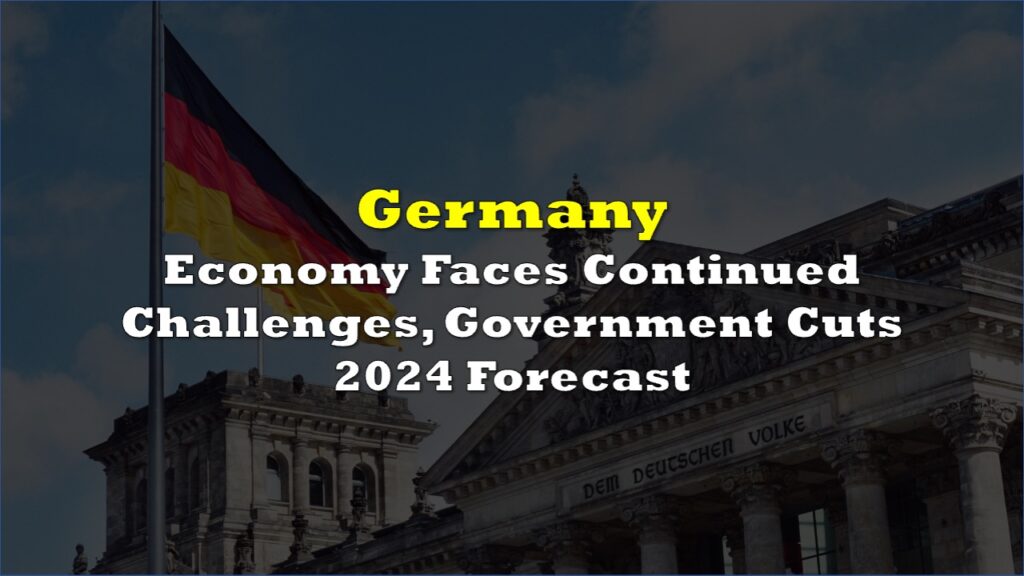In a startling revelation, documents from the Ministry for Economic Affairs and Climate Action, acquired by German media outlet Cicero, have uncovered clandestine manipulation behind the decision to phase-out the operation of German nuclear power plants in 2022. The files shed light on how influential figures within the Green Party orchestrated the outcome, with even Vice Chancellor and Economic Minister Robert Habeck falling victim to misinformation.
The significance of this revelation was underscored by Green Party’s Jürgen Trittin’s jubilant celebration on April 15, 2023, in front of the Brandenburg Gate. For Trittin, a pivotal figure in the environmental movement, this marked the pinnacle of his career. Amidst the backdrop of cameras, he stood before a symbolic tableau—a yellow dinosaur sprawled on Pariser Platz, adorned with the emblematic “Nuclear Power? No Thanks” sun, wielding a sword and shield.
Trittin, portrayed as the triumphant dragon slayer, basked in the momentous occasion—the day when the last of Germany’s nuclear power plants ceased operation.
Vom Ende des Atom-Dinos am Brandenburger Tor. Dank an Martin Kaiser, @greenpeace_de und Tausenden aus der Anti-AKW-Bewegung. Ihr habt den #Atomausstieg möglich gemacht. pic.twitter.com/rijuf8MR44
— Jürgen Trittin (@JTrittin) April 15, 2023
This closure signified the apparent triumph in the protracted political battle against the “nuclear state,” spanning over half a century. However, the narrative takes a nuanced turn as the resurgence of nuclear energy gains global momentum, particularly amidst climate change discussions. The sobering reality of Europe’s energy landscape, exacerbated by Putin’s war in Ukraine, prompts a reassessment of energy policies.
Yet, as other nations pivot towards nuclear energy, Germany stands out for its decision to shut down its nuclear plants, despite their reputation for safety and reliability. The perplexity surrounding this choice persists among citizens.
Seeking clarity, Cicero invoked the Environmental Information Act to scrutinize the decision-making process. Efforts culminated in a legal battle against the Ministry of Economic Affairs, led by Habeck.
During the oral hearing in January 2024, Habeck’s officials argued surprisingly honestly: Germany’s special path in nuclear energy must be “defended in the future both socially and towards international and European partners,” they are quoted in the minutes in German.
“The negotiating partners of the federal government could counter the developed arguments of the federal government – if the documents were disclosed,” the arguments read.
However, this did not convince the judge. His verdict: Habeck’s secrecy was unlawful, and the documents must be disclosed.
Documents disclosed
The revelations stemming from the documents received at the end of March, supplemented by previously disclosed information, provide a deeper understanding of the inner workings behind the decision-making process regarding German nuclear power plants. These documents, comprising internal correspondence, meeting transcripts, and letters, offer a comprehensive view of the discussions and decisions made.
One striking revelation is the marginalization of ministry experts in the decision-making process. Their expertise was largely sidelined with minimal consultation, if any, from leadership circles within the Ministry of Economic Affairs and the Ministry of Environment. Instead, decisions were predominantly made amongst Green Party loyalists within these circles, often disregarding or distorting assessments from expert departments.
A pivotal moment highlighted in the documents is a confidential meeting held on February 24, 2022, between Habeck, his then-State Secretary Patrick Graichen, and RWE CEO Markus Krebber. Although no formal protocol exists, an email from Krebber to Habeck and Graichen two days later sheds light on the discussion regarding gas and nuclear energy.
“As requested, I am attaching a document describing the complex aspects to consider in any deliberations regarding the continued operation of nuclear power plants,” wrote the RWE chief in German, emphasizing: “The assessment of this matter can only be made politically.”
Krebber’s attachment, seemingly neutral in tone, outlines considerations for the continued operation of nuclear power plants, emphasizing the political nature of the decision-making process.
Graichen’s subsequent forwarding of Krebber’s document to Stefan Tidow, his counterpart in the Ministry of Environment, underscores the coordination between key figures in the debate. Graichen and Tidow, both Green Party State Secretaries, shared a longstanding professional relationship, dating back to their time at the Ministry of Environment, as Cicero identified. Their alignment on the nuclear phase-out was evident in their correspondence, prioritizing political objectives over technical arguments:
“Dear Stefan,
Attached, as discussed, are the comments from the operators regarding the extension of operating lifetimes. Although there is no conclusion underneath, it’s basically clear: They don’t want this. Ultimately, something like this would also be needed from the nuclear regulatory authority. And then the question is, who puts it on which official letterhead.
Best regards,
Patrick”
(Translated from German)
Throughout the months-long struggle over the extension of nuclear power plant lifetimes, Graichen and Tidow emerged as central figures, exchanging information and maintaining a united front against any deviation from the phase-out trajectory. Their influence extended beyond their ministerial roles, shaping the discourse and decisions surrounding nuclear energy policy in Germany.
Habeck and misinformation
Habeck publicly addressed the sudden emergence of the nuclear power question for the first time on February 27. During an interview on the ARD program “Bericht aus Berlin,” he was asked if he could imagine keeping nuclear power plants online longer.
“It is also part of the task of my ministry to answer this question,” he replied, quickly adding that extending the lifespan for the coming winter would not help because the “nuclear power plants could only continue operating under the highest safety concerns and possibly with fuel supplies not yet secured.” With this statement, Habeck spread, either intentionally or because he didn’t know better, falsehoods.
However, his assertion that the question was “relevant” without outright rejection raised eyebrows, especially among Green Party insiders who hoped for a departure from the party’s anti-nuclear stance.
Yet, Habeck’s subsequent actions failed to align with this expectation. Instead of challenging entrenched ideologies, he appeared to acquiesce to party pressures, opting to explore alternative energy solutions such as reactivating coal-fired power plants rather than engaging in a substantive debate on nuclear energy.
A crucial moment occurred in the aftermath of Habeck’s interview, as revealed in an email exchange between Robert Heinrich and Volker Oschmann. Heinrich, head of the Directorate-General for Energy Policy and Energy Markets, tasked Oschmann with preparing a memorandum on the feasibility of extending nuclear power plant lifespans to bolster energy security. Oschmann, a Green Party appointee, had a background in environmental policy and had previously worked on renewable energy initiatives.
Habeck appointed Oschmann head of the electricity department in early 2022, dismissing its previous head. Now Oschmann received the following task:
“Dear Volker,
We need a memorandum that documents the results of the examination of the question ‘Can an extension of the lifespan of nuclear power plants help to increase energy security in the current situation,’ and with which we can work both internally and publicly. The minister announced yesterday that it is being examined.
Can you expedite this? (If it doesn’t already exist). Thank you very much.
Best regards!
Robert Heinrich, LA”
(Translated from German)
The subsequent handling of Oschmann’s memo remains shrouded in mystery, as no clear trail exists in the records. However, the content of the memo, as outlined by the Ministry of Economic Affairs experts, emphasized the potential benefits of extending nuclear plant lifespans, particularly in mitigating energy supply risks during peak demand periods.
“It is currently unclear whether sufficient natural gas can be stored for the next winter to enable the operation of gas-fired power plants for several days alongside industrial consumption and heat supply. (…) Extending the lifespan of nuclear power plants until March 31st can help to defuse this situation. (…) In addition, it is extremely risky to support electricity generation from natural gas exclusively through additional generation from reserves and already decommissioned coal-fired power plants next winter,” one memo from the ministry experts read, translated from German.
This memo contradicted the prevailing narrative within Green Party circles, which often downplayed the role of nuclear energy in favor of renewable sources. Despite the evidence presented by ministry experts, Habeck’s press office claimed that the memo was only known to Graichen, raising questions about its accessibility to the minister himself.
The dismissal of Graichen in May 2023, amidst controversy over his personal affairs, raised further scrutiny on Habeck’s leadership and decision-making process. Critics argued that Habeck’s delayed action in removing Graichen underscored the influence of entrenched energy transition advocates within the Green Party, including figures like Trittin.
Editing notes
Not only in the Ministry of Economic Affairs but also in the Ministry of Environment, experts were hindered. In the Ministry of Environment, Department S “Nuclear Safety, Radiation Protection” serves as a critical oversight body responsible for ensuring the safety and regulation of nuclear facilities. However, the appointment of Gerrit Niehaus, a staunch opponent of nuclear power, as the department head in February 2022 raised concerns about impartiality and objectivity in decision-making.
Niehaus’s tenure quickly underscored these concerns as he reportedly revised a note from subordinate experts to align with predetermined political goals. A comparison of the original note, dated March 1, 2022, and the revised version, dated March 3, reveals significant alterations orchestrated by Niehaus.


The first note is signed by two experts and a department head. Under the heading “Extension of the lifespan of German nuclear power plants – Scenarios compatible with nuclear safety,” it outlined what would have been technically possible. The authors described continued operation of the still operating nuclear power plants “for several years” as “compatible with maintaining nuclear safety” and outlined the necessary steps. They consulted with the Gesellschaft für Anlagen- und Reaktorsicherheit (GRS), in which the federal government is also involved and a key authority in nuclear safety matters
Niehaus received this note and must have been very dissatisfied because he rewrote it. First, he replaced the word “nuclear power” with “atomic power” everywhere. Then he set about reversing the core message of the note.
In the new version dated March 3 – which is no longer signed with names but only with “Department S” – the statement that a genuine extension of the lifespan with new fuel rods for several years would be technically possible was missing. Instead, at the top and in bold, it said: “The Department S (Nuclear Safety, Radiation Protection) concludes that extending the lifespan of the three remaining nuclear power plants beyond the legally and planning-based deadline of December 31, 2022, is not justifiable from a safety standpoint.”
And at the very end, also in bold: “An extension of the lifespan is to be rejected for reasons of nuclear safety.” Notably, Niehaus’s revisions omitted any mention of consultations with the GRS.
Of course, we now know that Niehaus’s claim that a short-term extension would be unsafe was false. This was proven by the Greens’ decision themselves to agree to the extension of nuclear power operation without new fuel rods due to fear of power outages in winter.
Habeck in the middle
The internal turmoil within the Green Party over the nuclear power debate continued to unfold, leaving Habeck grappling with the consequences of opaque decision-making processes and conflicting narratives.
Tidow, Minister for the Environment Steffi Lemke’s Secretary of State, played a pivotal role in the dissemination of information, selectively forwarding revised documents to key stakeholders. Tidow’s decision to informally send Niehaus’s altered version of the note to the Ministry of Economic Affairs on March 3 highlights the lack of transparency surrounding critical discussions.
Meanwhile, Graichen, in his role as intermediary, attempted to shape the narrative by drafting a note on the “examination of the continued operation of nuclear power plants due to the Ukraine war.” In it, he arrived at the desired conclusion: after “weighing the benefits and risks,” an extension of the lifespan was not recommended. However, his flawed analysis, riddled with inaccuracies, drew criticism even from politically aligned figures like Niehaus.
“Dear Stefan,
Unfortunately, the introduction, especially in terms of legal matters, is grossly incorrect. I tried to prevent the worst. Furthermore, I cannot support the statement that necessary upgrades were not carried out with regard to the end of the lifespan, as the responsible supervisory official. My changes attempt to mitigate that.
Best regards,
Gerrit”
(Translated from German)
Despite this, Graichen had already forwarded the flawed draft to Habeck, setting the stage for further misinformation.
Over the weekend, Habeck took it upon himself to transform Graichen and Tidow’s bureaucratic note into a detailed question-and-answer document, intended for public dissemination. However, the document, laden with inaccuracies, prompted a flurry of discussions within Habeck’s team about its suitability for publication.
Habeck sent his densely written five-page document to Graichen, Tidow, and a few other key staff on a Saturday afternoon:
“Dear Patrick, dear Stefan,
I’ve created an FAQ based on your fabulous paper because I believe we need to TELL the story. If you want to read over it – everyone else too. I suggest emailing it to the operators tomorrow at 12:00.
Best regards,
R”
(Translated from German)
Ultimately, the narrative crafted by Habeck’s team underwent substantial revisions before being published on the ministry’s website on March 8, 2022. Despite efforts to present a cohesive message, the underlying discord and misinformation persisted within the leadership circle.
Still a win for phase-out
Despite Habeck’s stance, through this series of misinformed events, that extending the lifespan of nuclear power plants was neither feasible nor advisable, mounting pressure from regions like Bavaria, facing the imminent threat of gas shortages, forced a reassessment of the situation. Bavarian Minister of Energy, Hubert Aiwanger, urged Chancellor Olaf Scholz to intervene, citing concerns about misinformation stemming from the examination note of March 7, 2022:
“The recent statements by your responsible Federal Minister Dr. Robert Habeck, MP, at the special energy ministers’ meeting (…) lead me to fear that the government’s previous inaction on this matter is based on misinformation from the so-called examination note of March 7, 2022, from BMWK and BMUV. (…) I appeal to you to use your policy authority and instruct the BMWK and BMUV to immediately take all necessary steps to enable the temporary continued operation of the Bavarian nuclear power plants Isar 2 and Gundremmingen C,” Aiwanger wrote Scholz.
Following persistent lobbying efforts and warnings from electricity grid operators about potential supply gaps during cold weather, Scholz eventually instructed Habeck and Lemke, the Green ministers, to keep three nuclear power plants operational over the winter. This decision, made on October 17, 2022, marked a significant departure from Habeck’s earlier stance and underscored the pragmatic approach to energy security concerns.
For the Green Party, while the outcome represented a compromise, it still aligned with their overarching goal of preventing long-term extensions and the reactivation of decommissioned nuclear plants. However, the debate surrounding nuclear energy in Germany is far from settled, with experts suggesting the possibility of bringing additional plants online with reasonable effort.
“Revelations are a scandal and a reason for resignation”
This development on the nuclear discussion has ignited a firestorm of reactions from politicians across the spectrum, with many calling for accountability and a thorough investigation into the alleged manipulative processes within the Ministry of Economic Affairs.
Opposition figures have been particularly vocal in their condemnation of the revelations. Hamburg MP Christoph Ploß labeled the uncovered processes as “a reason for resignation,” citing concerns about misleading the public and driving up electricity prices.
CSU Secretary-General Martin Huber went further, questioning Habeck’s suitability for office and alleging deception regarding the nuclear phase-out.
“#Habeck has deceived the country on the #nuclear phase-out. Either he lied or his own #ideology ministry is out of control. A minister whose department, against better knowledge, causes such great damage to the German economy and energy supply is no longer tenable,” he wrote on X, translated from German.
#Habeck hat das Land beim #AKW-Aus getäuscht. Entweder hat er gelogen, oder sein eigenes #Ideologie-Ministerium nicht im Griff. Ein Minister, dessen Haus wider besseren Wissens so großen Schaden für die deutsche Wirtschaft und Energieversorgung verursacht, ist nicht mehr tragbar.
— Martin Huber (@MartinHuberCSU) April 25, 2024
Members of the CDU have echoed these sentiments, with Deputy Federal Chairman Jens Spahn denouncing what he perceives as manipulation and deception aimed at prioritizing the Green Party’s interests over the country’s well-being. “Tricked, deceived, covered up,” he highlighted.
Thorsten Frei, First Parliamentary Managing Director of the CDU/CSU parliamentary group, called for a thorough investigation by the Ministry of Economic Affairs, warning of potential consequences if transparency is not forthcoming.
Interestingly, even politicians within the Ampel coalition, notably the FDP, have criticized the manipulative processes and Habeck’s role in them. Michael Kruse, energy policy spokesperson of the FDP parliamentary group, expressed disappointment over the alleged misinformation, emphasizing the need for decisions to be made in the country’s best interest rather than party ideology. Similarly, FDP MP Katja Adler highlighted the detrimental impact of ideology-driven decision-making on the energy transition and the economy.
In response to the uproar, the Ministry of Economic Affairs emphasized the openness and transparency of the examination process regarding the nuclear power plants’ lifespan. Habeck’s press office reiterated that decisions were made based on evolving circumstances and available information at the time.
Information for this story was found via the sources and companies mentioned. The author has no securities or affiliations related to the organizations discussed. Not a recommendation to buy or sell. Always do additional research and consult a professional before purchasing a security. The author holds no licenses.









